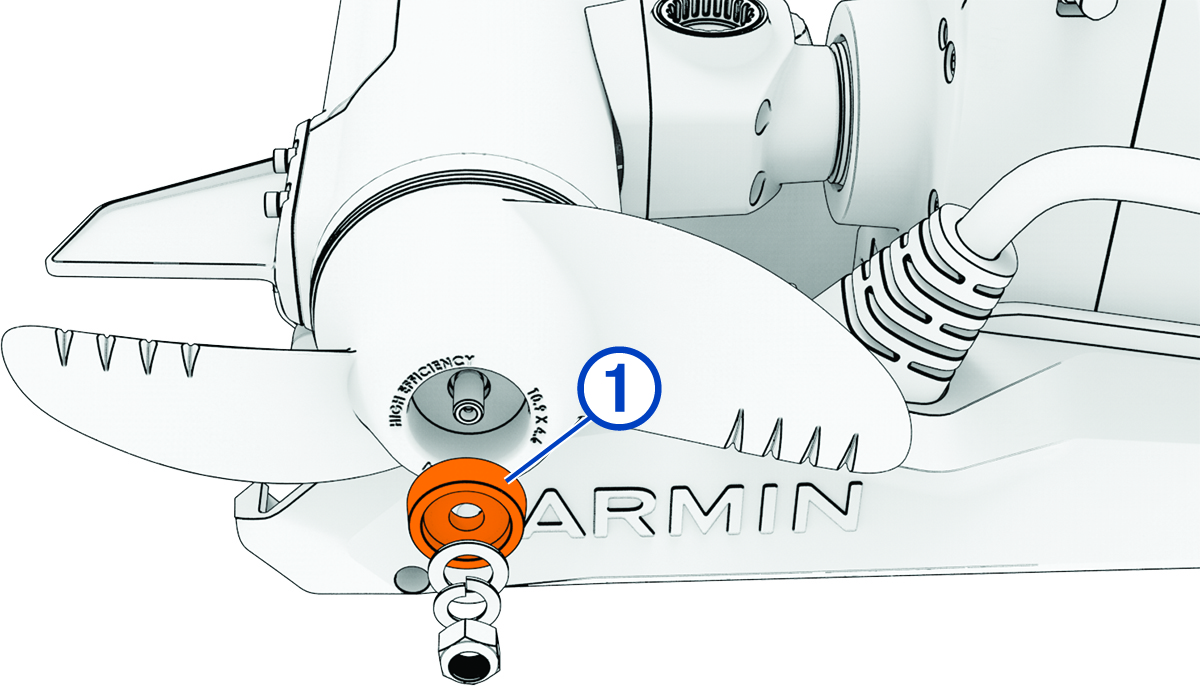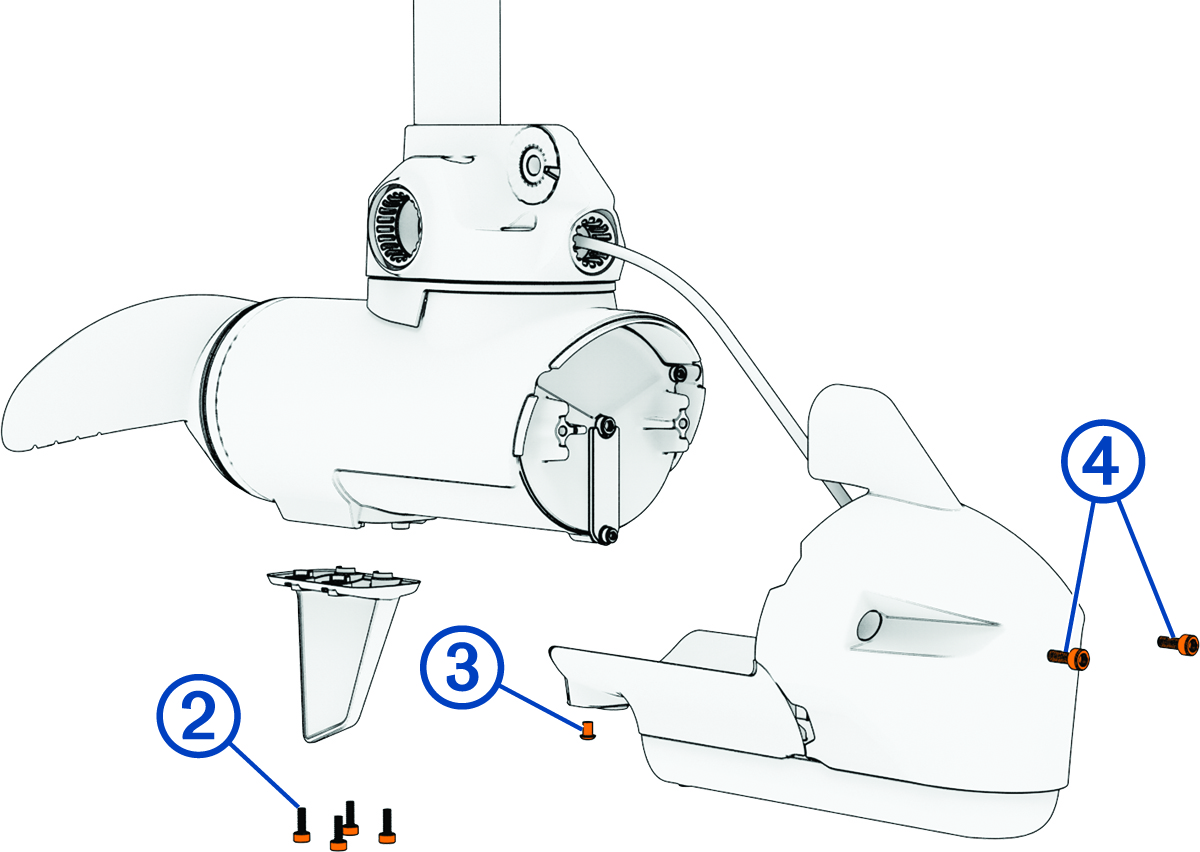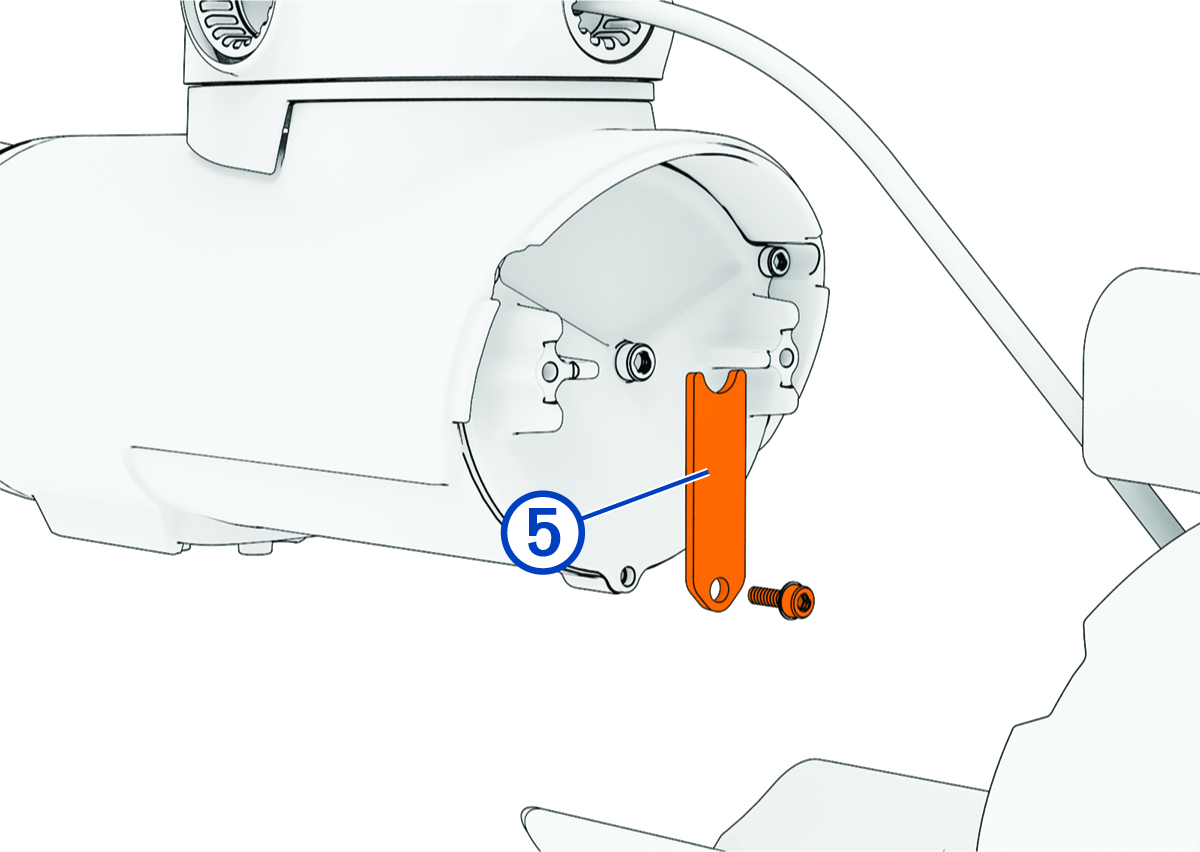Servicing the Anodes
The anodes protect the motor components from corrosion, and each season they must be examined and cleaned or replaced if necessary.
- Using a 9/16 in (15 mm) socket, loosen the nut on the end of the propeller.
-
Remove the nut, lock washer, flat washer, and anode
.

-
Examine the anode, and complete an action:
-
If the anode is more than half of the original size, clean the anode using a wire brush or sandpaper.
NOTICERemove the anode from the motor before cleaning it with a wire brush or sandpaper. Cleaning the anode while installed on the motor could damage the motor, accelerate corrosion, and shorten the life of the motor.
-
If the anode is less than half of the original size, discard the anode and purchase a replacement.
-
- Place the cleaned or new anode on the propeller shaft, and secure the propeller with the flat washer, lock washer, and nut.
- Using a 9/16 in (15 mm) socket, tighten the nut to 8.13 N-m (6 lbf-ft).
-
Using a 4 mm hex bit or wrench, remove the four screws
securing the skeg on the bottom of the motor.

-
Using a 3 mm hex bit or wrench, remove the screw
that secures the transducer and nose cone to the bottom of the motor .
-
Using a 4 mm hex bit or wrench, remove the screws
to disconnect the nose cone from the front of the motor.
-
Using a 3 mm hex bit or wrench, remove the screw and anode
on the front of the motor.

-
Examine the anode, and complete an action:
-
If the anode is more than half of the original size, clean the anode using a wire brush or sandpaper.
-
If the anode is less than half of the original size, discard the anode and purchase a replacement.
-
- Place the cleaned or new anode on the screw and secure it to the motor.
- Secure the nose cone to the front of the motor.
- Install the screw that secures the transducer and nose cone to the bottom of the motor.
- Install the skeg on the bottom of the motor.